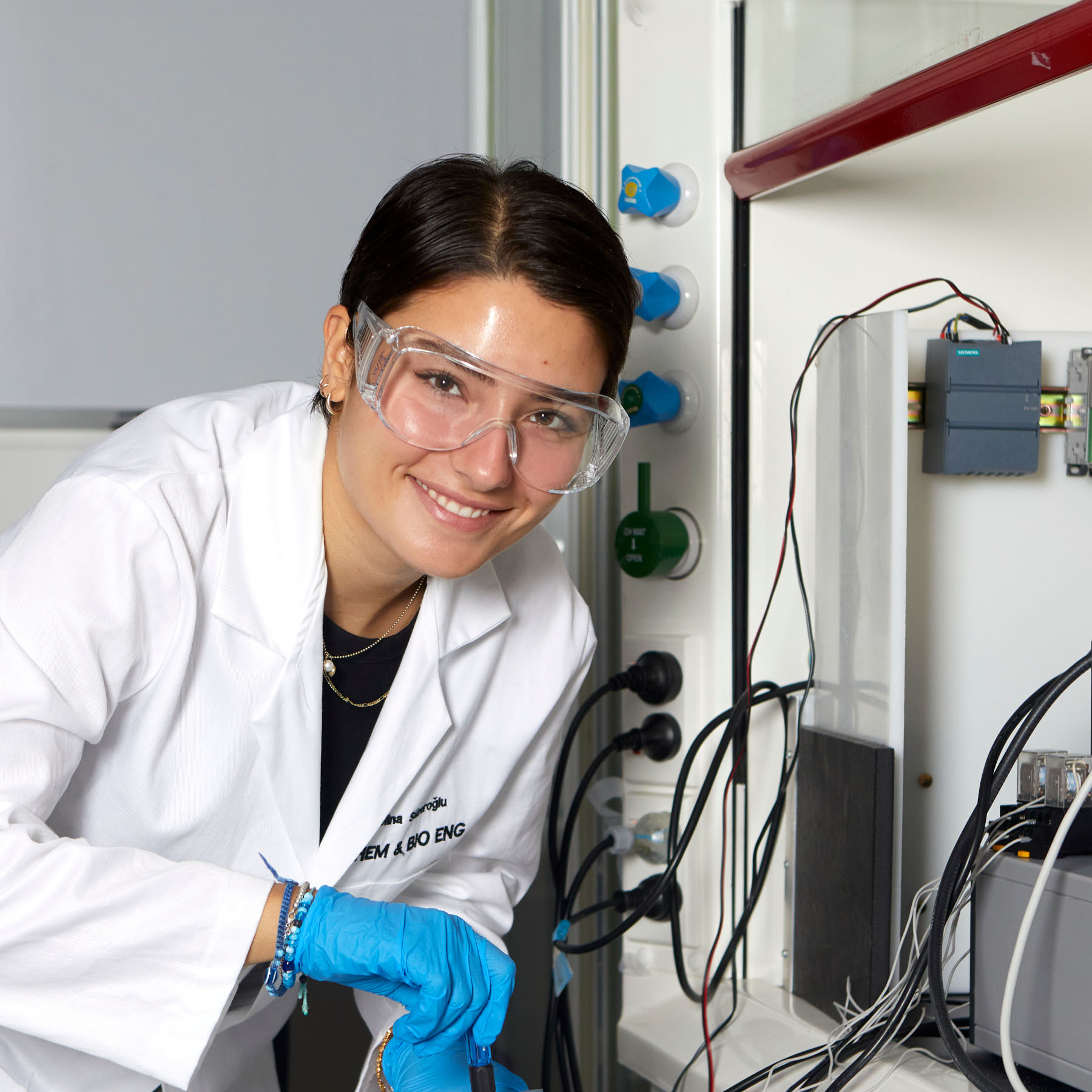Alumni Profile – Selina Süzeroğlu
Completing a master’s degree in physics would be hard enough for most people, but Selina Süzeroğlu decided to fly halfway across the world to take on a further challenge.
While studying her postgraduate qualification at Ludwig-Maximilians-Universität in Munich, Selina accepted an opportunity for a six-month placement at Monash University.
Under the supervision of Exciton Science Chief Investigator Professor Udo Bach and Dr Adam Surmiak, she assisted in the development of a unique high-throughput testing and characterisation infrastructure.
Due to be inaugurated in late 2023, the automated set-up that Selina contributed to is set to significantly accelerate the process of developing and testing new solar cells and other materials, including catalysts for hydrogen generation.
“I worked on the automated spectroscopy and microphotography of samples,” she said.
“We can use this system to improve materials that we can implement into renewable energy technology.
“We use devices that are super fast. You don't have to supervise it at all. You can just leave it doing its thing 24/7, and lean back.
“And the amazing thing is that there’s a machine learning application to it. We can not only do the measurement automation, we can also do the analysis of the results we get, and the machine learning analysis of that.
“The machine learning does all the searching for band gap energies, excitonic features, and also surface analysis of our samples. You can use your time differently and more efficiently somewhere else.”

Selina Süzeroğlu
By automating the synthesis and testing process, the new facility in Clayton, Victoria, is removing human error as a factor.
“It is very reproducible,” Selina said.
“We can double check if we really have such a nice sample or not. And with that result, we can go into industry, we can go into research, we can go into renewable energies, and apply the results there.
“Everyone is very excited about it. All the students I talked to, they were very happy about hearing they don't have to stand in the lab anymore to do the spectroscopy analysis, or even the spectroscopy measurements.”
There was a steep learning curve for Selina on her arrival in Melbourne, as Adam set her the tough challenge of quickly gaining the coding knowledge necessary to progress the project.
“I had no Python or programming skills whatsoever,” she said.
“I went in there without knowing what any of those things are. And then I learned from scratch the basic Python skills, and then improved to learn how to communicate with different devices using Python.”
Back home in Bavaria and having completed her studies, Selina is now working at the FIM Research Institute for Information Management.
And while it’s early days for her career, she knows the skills gained during a whirlwind stay Down Under are sure to stand her in good stead amid a rapidly changing technological landscape.
“I was thinking about different research areas I want to apply programming skills in,” Selina said.
“I definitely want to go into artificial intelligence more, and eventually maybe go into the women's health sector, which personally is a matter close to my heart, and work there in the machine learning and artificial intelligence area.
“But the nice thing about artificial intelligence and programming skills is that it's interdisciplinary. So I can actually choose which area I'm most interested in and then get into that.
“I would love to see this platform and my work used in renewable energy or women's health. That would be so amazing to actually see that we can use this in such amazing, important areas that are neglected so far. Especially renewable energy in Australia, I feel like it has so much potential.
“Using this, and finding materials which may have a big improvement in renewable energy and sustainability here, would be absolutely amazing. That would be the dream.”
Achievements - Awards and Grants
Member profile: Rugang Geng